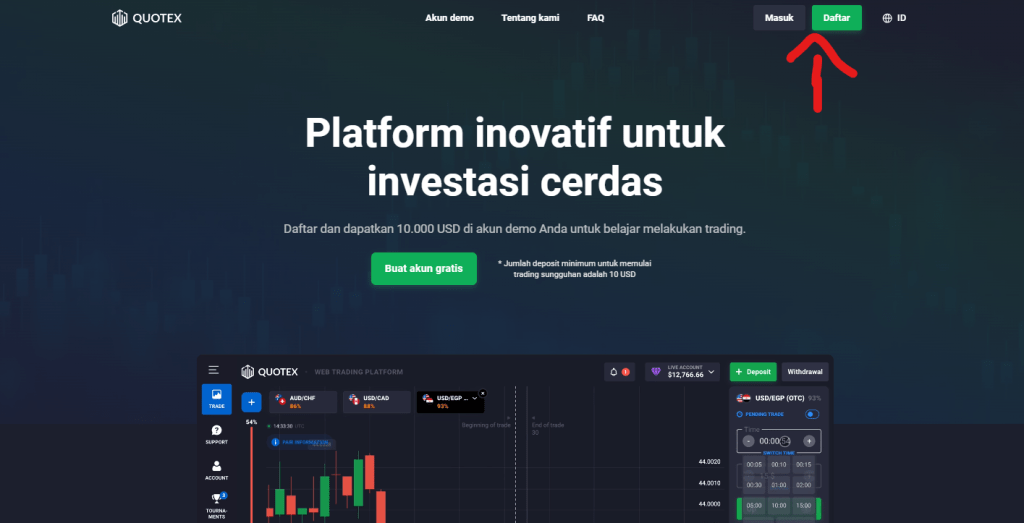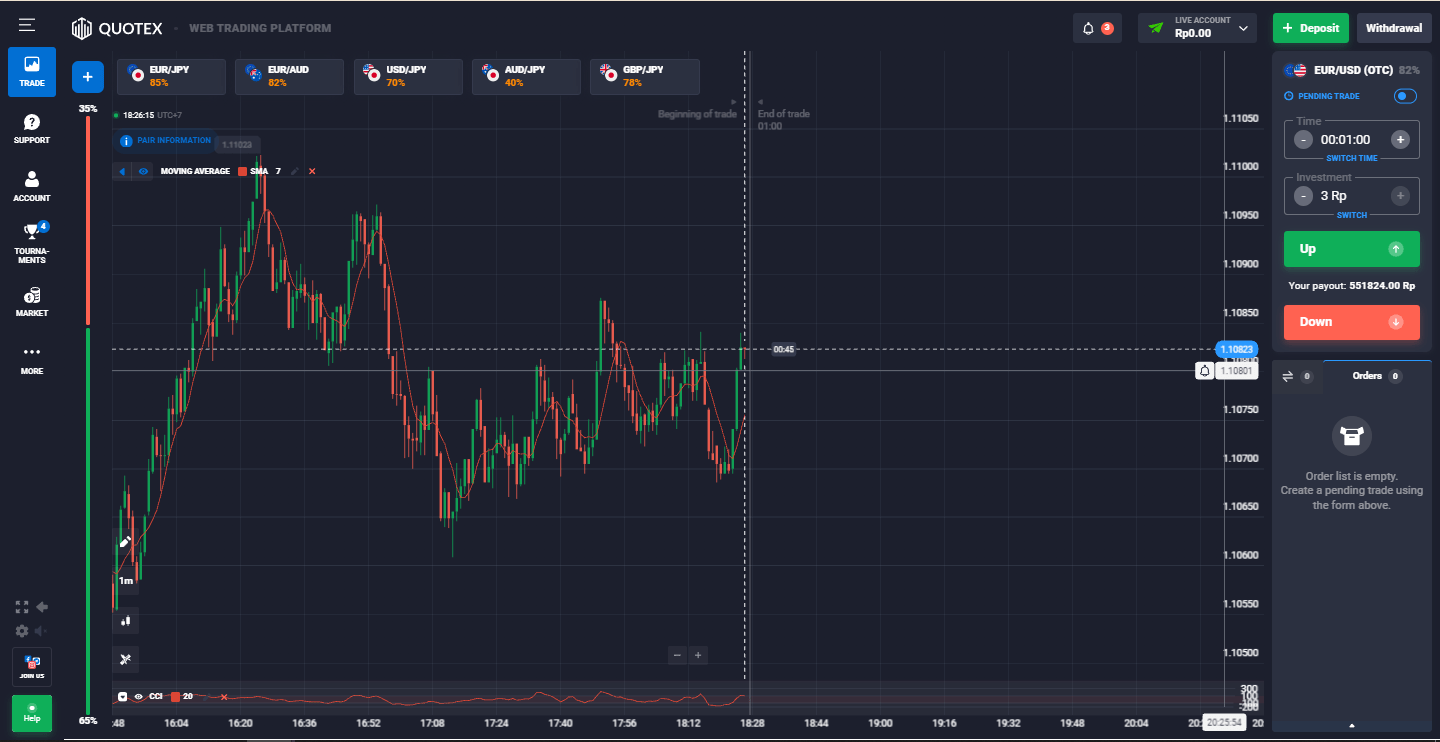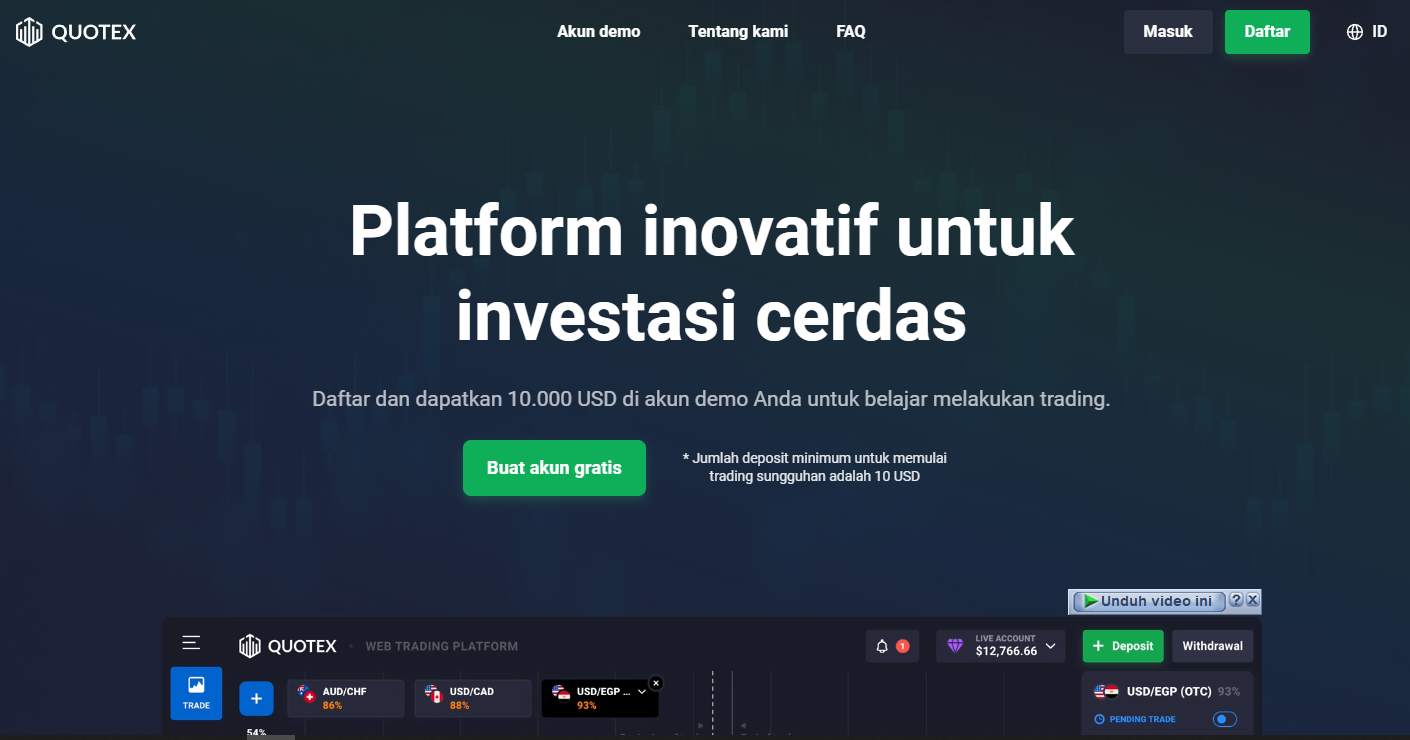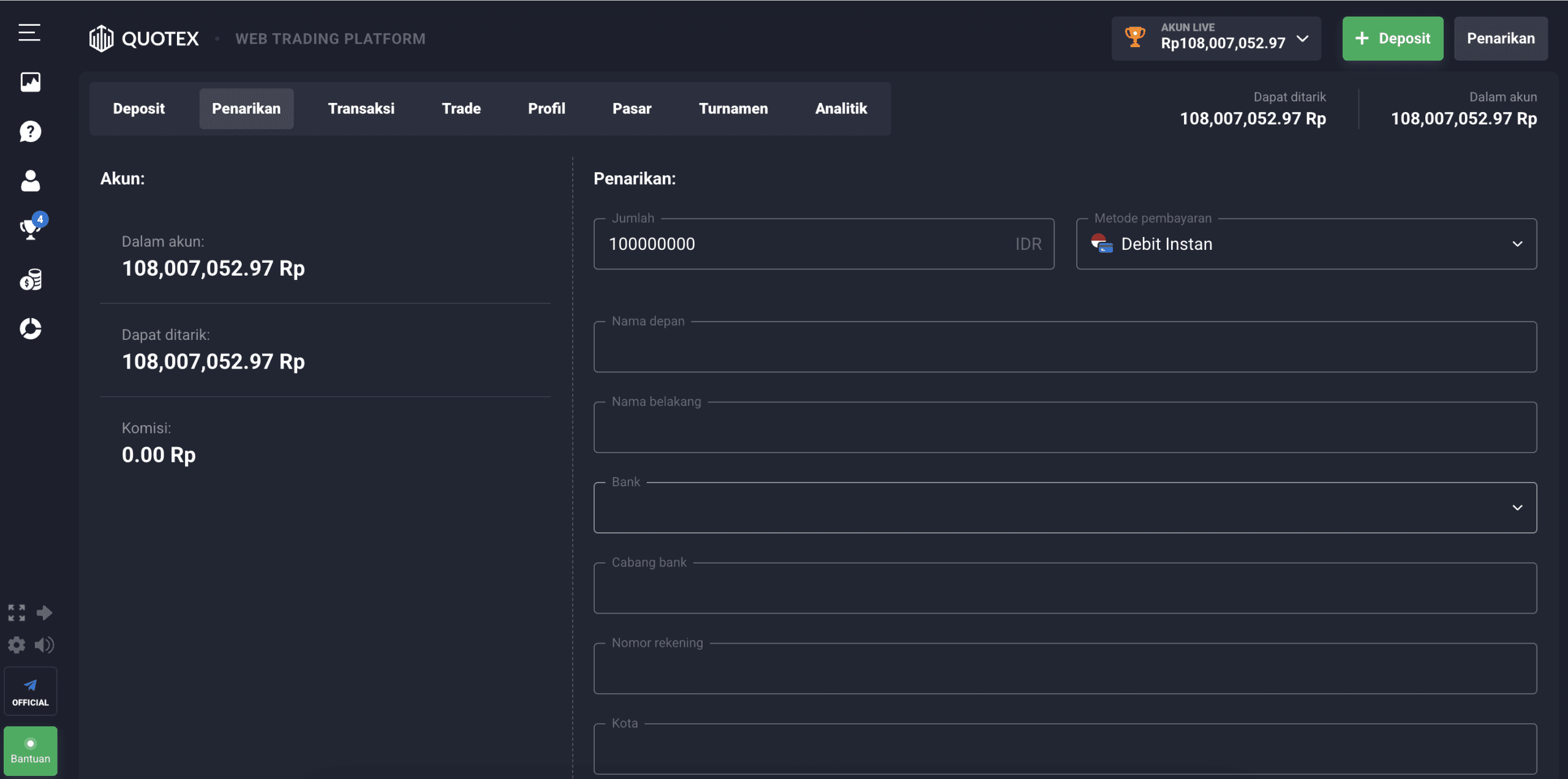Table of Contents
Quotex: Demo account or Reall account first?
For anyone dipping their toes into the exciting world of online trading, Quotex often emerges as a popular platform. But once you’ve decided on Quotex, a crucial question arises: should you start with a Quotex demo account or jump straight into a Quotex real account? Let’s break down the pros and cons to help you make an informed decision.

The Case for Starting with a Quotex Demo Account
A demo account is essentially a risk-free training ground. Quotex provides virtual funds that you can use to simulate real trading scenarios. Here’s why it’s often the recommended starting point:
- Learn the Platform: Trading platforms, including Quotex, can have a bit of a learning curve. A demo account allows you to familiarize yourself with the interface, understand where all the tools are, and get comfortable with placing trades without the pressure of losing actual money.
- Understand Market Dynamics: The financial markets are constantly fluctuating. A demo account lets you observe and react to these changes in real-time, helping you grasp concepts like price action, trends, and volatility.
- Develop and Test Strategies: Successful trading often hinges on a well-defined strategy. With a demo account, you can experiment with different indicators, timeframes, and trading approaches to see what works best for you without financial repercussions. It’s a safe space to make mistakes and learn from them.
- Build Confidence: Trading can be intimidating. Practicing on a demo account can help build your confidence and reduce anxiety before you commit real capital.
- No Financial Risk: This is the most significant advantage. You can make as many mistakes as you need without any impact on your personal finances.

When a Real Account Might Seem Appealing (and Why You Should Still Be Cautious)
Some newcomers might be tempted to jump directly into a real account, driven by the excitement of potential profits. While the allure is understandable, doing so without prior practice carries significant risks:
- Emotional Trading: Trading with real money introduces a powerful emotional element – the fear of loss and the greed for profit. These emotions can lead to impulsive decisions and deviate from a sound trading plan. A demo account, while not replicating this perfectly, helps you build discipline before these emotions become a factor.
- Loss of Capital: Without understanding the platform or market dynamics, you’re highly susceptible to losing your initial investment quickly.
- Steep Learning Curve Under Pressure: Learning on the fly with real money can be incredibly stressful and counterproductive.
So, Which One First? The Clear Answer
For the vast majority of aspiring traders, the answer is unequivocally: start with a demo account.
Think of it like learning to drive. You wouldn’t immediately get behind the wheel of a real car on a busy highway. You’d practice in a controlled environment, get a feel for the controls, and build your skills before taking on real-world challenges. Trading is no different.
Spend a significant amount of time on the demo account – weeks, or even months, until you consistently feel comfortable with the platform, have a basic understanding of market movements, and have started to develop a trading strategy that shows promise.
Transitioning to a Real Account
Once you feel confident and consistent on your Quotex demo account, you can consider making the transition to a real account. When you do, it’s wise to:
- Start Small: Begin with a minimal deposit that you are comfortable losing. Don’t invest more than you can afford to lose.
- Maintain Discipline: Stick to the strategies you developed and tested on your demo account. Avoid impulsive decisions driven by emotions.
- Continue Learning: The financial markets are always evolving. Keep learning, adapting, and refining your trading skills.
In conclusion, while the prospect of earning real money is exciting, patience and practice are key to long-term success in trading. A Quotex demo account is an invaluable tool that provides a safe and effective way to learn the ropes, develop your skills, and build the confidence needed to navigate the complexities of the financial markets. Master the demo, then conquer the real.




